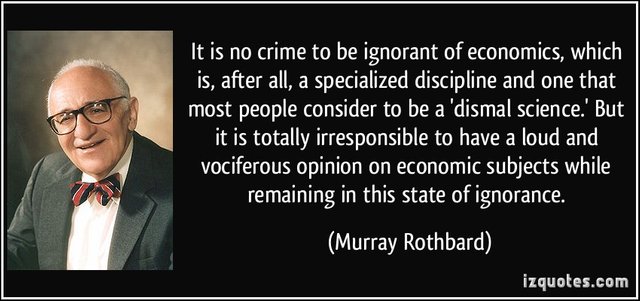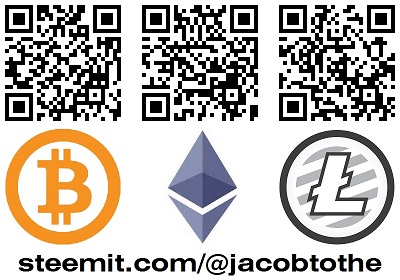Value
Serious discussion of economic principles can be quite difficult when specific terms are poorly defined or misunderstood.In common usage, the words "price," "value," and "worth" are all used almost interchangeably, but in economic terms they represent distinct concepts. Confusion over these distinctions and their relationships is one of the biggest stumbling blocks to understanding how things really work.
Value
Value is a subjective property in any good or service, dependent solely upon the desires of the individual who is in a position to assign value to it. Many goods have intrinsic properties that people tend to value, but the value itself is not such a property.
Market supply and demand, The marginal utility of gaining or losing another instance of the commodity in question, the relative scarcity of the commodity, and the immediacy of its intended use all affect how someone values something.
The Water-Diamond Paradox
Adam Smith was perplexed by the water-diamond paradox, where he observed that water is valued little and diamonds are valued highly even though the former is essential to life and the latter is a pretty rock.
Certainly the demand for water is high, but in most of the world it is also abundant. It is easy to replenish the stock of water, especially with modern filtration and transportation systems or water pipe infrastructure. There is little benefit to stockpiles of water beyond an emergency supply for a few weeks in most cases.
Meanwhile, gem-quality diamonds are relatively scarce (The De Beers diamond cartel system notwithstanding) and remain in high demand. People often have a high marginal utility value on multiple diamonds, especially with certain characteristics. And when someone decides to buy an engagement ring or other occasion-specific piece of jewelry, there is not always a lot of time to properly shop around or wait for a better price.

Credit
Mutual Benefit
I place zero value in Justin Bieber's "music." It's just not my style in any way, shape, or form and I am not the intended audience. However, there are people who do value his music enough to buy concert tickets and CDs or MP3 downloads. This demonstrates how wildly different the subjective values assigned by different people can be.
Because there are people who value some things more than I do, and there are some things I value more highly than others, mutually-beneficial exchanges can occur. There is no exploitation in trade when this disparity in subjective value is understood.
A simpler example would be the baker and the bread buyer. Suppose an artisan baker offers loaves of bread for $5 each. The simple fact that someone is willing to exchange $5 for a loaf of bread is proof that the two hold different value scales for bread and $5.

Credit
Supply and Demand
Suppose the expense of the ingredients, time, and equipment to bake bread is so low that the baker earns $4 as a surplus on each of his loaves. Is this exploitation of his customers? Not in the least. If the demand is sufficient to support that price level at his rate of supply, he has found an equilibrium point between supply and demand that works in the economy.
However, that level of profit is also a signal to other potential producers that there is more demand to be served. The price does not define the value of a loaf of bread in general, only the current market equilibrium for that baker's bread under current supply and demand. If other bakers enter the market offering similar bread at a lower price, the market will be better served, resulting in a trend toward lower prices. Other factors that might alter demand could include a gluten-free diet fad, resulting in less sales of wheat bread. However, a smart baker would recognize this trend and offer gluten-free breads while exploring the price equilibrium for this new market. Similarly, if there were an increase in demand for "artisanal" bread as opposed to mass-market brands like Wonder Bread, the baker might find his original loaves could command a higher price.
Such factors all affect the values people place on goods and services, and the price of anything is always fluctuating toward a new ever-changing market equilibrium.
Labor Theory of Value
Hopefully, now that the concept of value itself and some of the factors influencing it have been touched upon, albeit lightly, it is time to address a significant misunderstanding of value popular in certain economic schools of thought: Labor does not create value.
If I take twice as long as someone else to perform a task to an equal degree, my completed task is not worth twice as much as the other's. This should be obvious. Slightly less obvious is that if I work hard at something, my labor doesn't mean that other people will value it at all. To argue that labor creates value puts the cart before the horse.
People choose to invest labor in things because they believe others will value those things. Justin Bieber could sing as much as he wants, but if no one values his signing more than I do, it doesn't really matter how hard he tries to find an audience. I could work really, really hard to sculpt a statue, but that doesn't mean someone else will value it in the slightest. Of course, this doesn't mean that I have to value Bieber's music for him to find someone who does, and I may choose to sculpt either for my own satisfaction (valuable to me in and of itself) or as a speculative venture to see whether there is a market demand for what I make.
Conclusion
Beware of pundits or professors who casually toss out terms like "value" and "price" without understanding distinctions. Don't trust anyone who claims trade is inherently exploitative. Be skeptical whenever someone insists something should be priced due to the labor that went into it as though labor itself imparts some intrinsic value.

Credit

Very nicely stated, and well and logically argued.
You have made the perfect case for why, when I am able to have people "work for me," I organize things as "piece work." I pay for a specific result, a fee-for-completed-item.
The completed item is what is of value to me, provided that it meets quality standards. I care not at all how long it took the person assembling and testing it for me. The faster they can do so - with quality - the better for both of us.
😄😇😄

I prefer to work at a piece work rate when the job allows for such a measurement. It feels most honest for me and my employer alike.
To disprove Labor theory of value you could simply go onto YouTube and see that some of the most popular and well payed videos are simply toy unboxing videos or unscripted vlogs that have had little to no thought put into them. Then if you look at videos from commentators that work on researching their subjects for days (sometimes weeks) and take around a week to shoot and edit the video. They usually have a small fraction of the views that these less thought provoking channels have. More labor did not create more value.
this is a very perfect economic discussion. success is always for you friends.